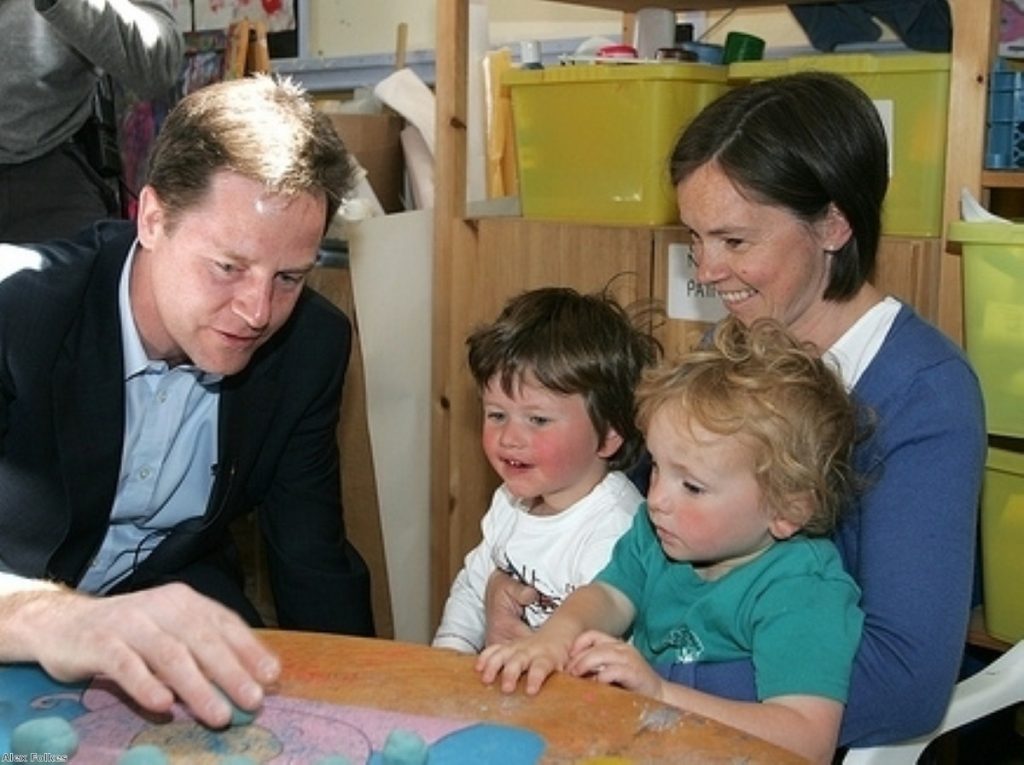Labour brings coalition’s childcare spat to a head
The coalition will be forced to clarify its position on childcare ratios later.
Labour is using its opposition day in the Commons to force the issue to a vote, after deputy prime minister Nick Clegg made clear last week the plans were "dead in the water".
His comments did not prompt concessions from Conservative sources or even admissions the government's policy has been decided as the consultation proposing an increase in childcare ratios drags on.
"If Nick Clegg is serious about blocking Liz Truss' reforms, he should lead his MPs in joining Labour in voting for measures to protect child safety," shadow children's minister Sharon Hodgson said.


"We need action, not warm words."
Children's minister Liz Truss has proposed changing the adult to child ratio from 1:3 to 1:4 for children under two. The ratio for two-year-olds could be increased from 1:4 to 1:6.
She has argued the existing childcare system is struggling and that parents struggling with affordability must accept higher ratios.
But opponents, including the government's adviser Professor Cathy Nutbrown, have said the plans "make no sense at all".
Childcare professionals are dead set against the reforms because they would mean watering down the experience they offer to potential clients – that their children will be looked after carefully and attentively while they go out to work.
Clegg, who critics say is looking for 'policy wins' as the coalition's unity gradually breaks down, is using this backlash to firmly oppose Truss' plans.
"There is no real evidence that increasing ratios will reduce the cost of childcare for families," he said last week.
"The argument that this will help families with their weekly childcare bill simply does not stack up.
"I cannot ask parents to accept such a controversial change with no real guarantee it will save them money – in fact it could cost them more."
Campaigners complaining about the heavy price of childcare have pointed to further reform of the childcare voucher system as the best way to help mitigate the affordability problem.
Working parents can save up to £1,800 a year on their childcare costs, but many – including the self-employed – are currently excluded.
Families spend an average of 27% of their income on childcare costs, compared to 11% in countries like France. Nursery staff earn an average of just £13,000, however, meaning the sector is under heavy pressure to retain qualified workforce.
"Our proposals will allow nurseries who hire high quality staff to be able to exercise high quality judgement," Truss said last month.
"These ratios are not compulsory. This is about professionals in the childcare sector being able to exercise their judgement in delivering an affordable, high quality service to parents."












